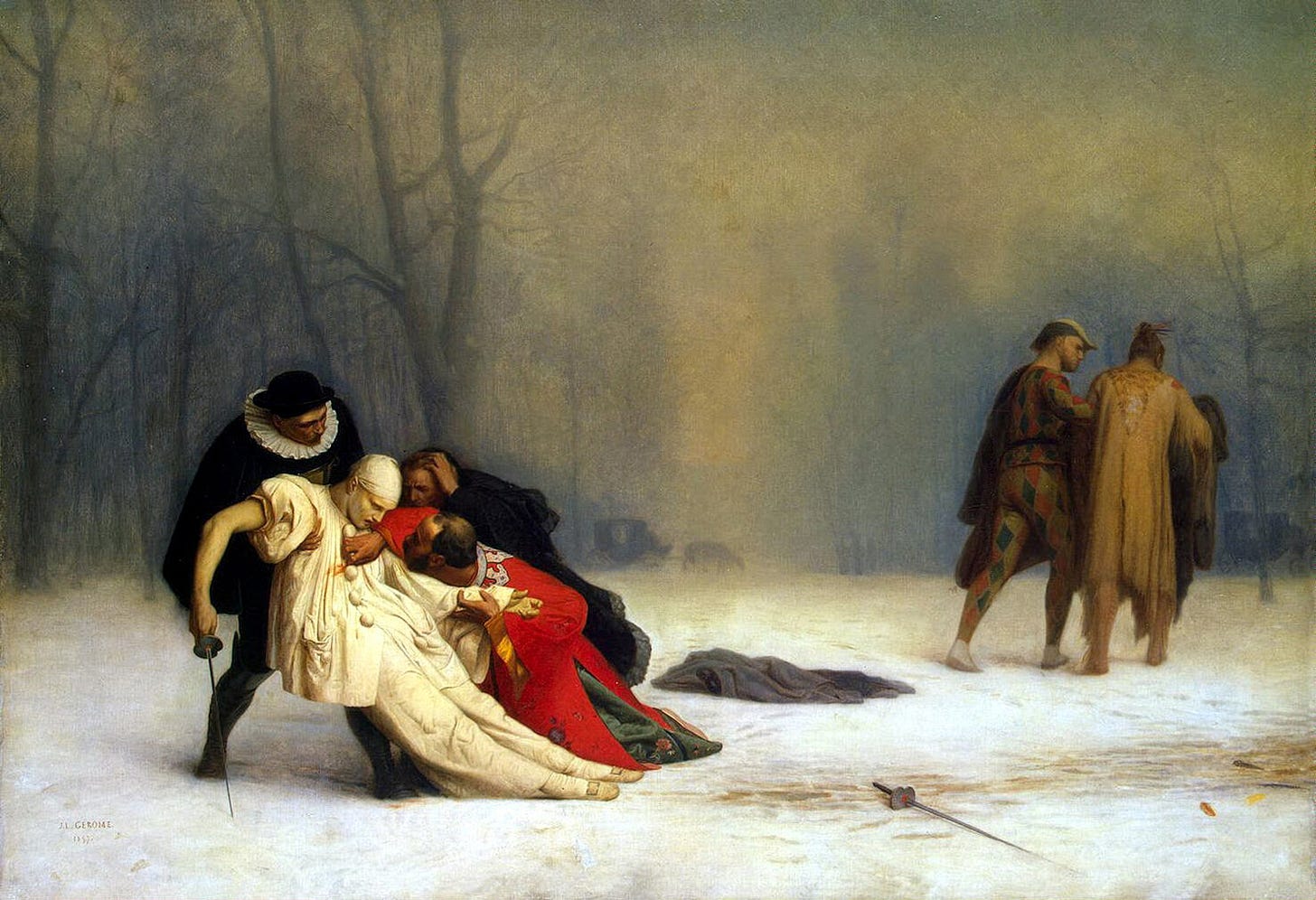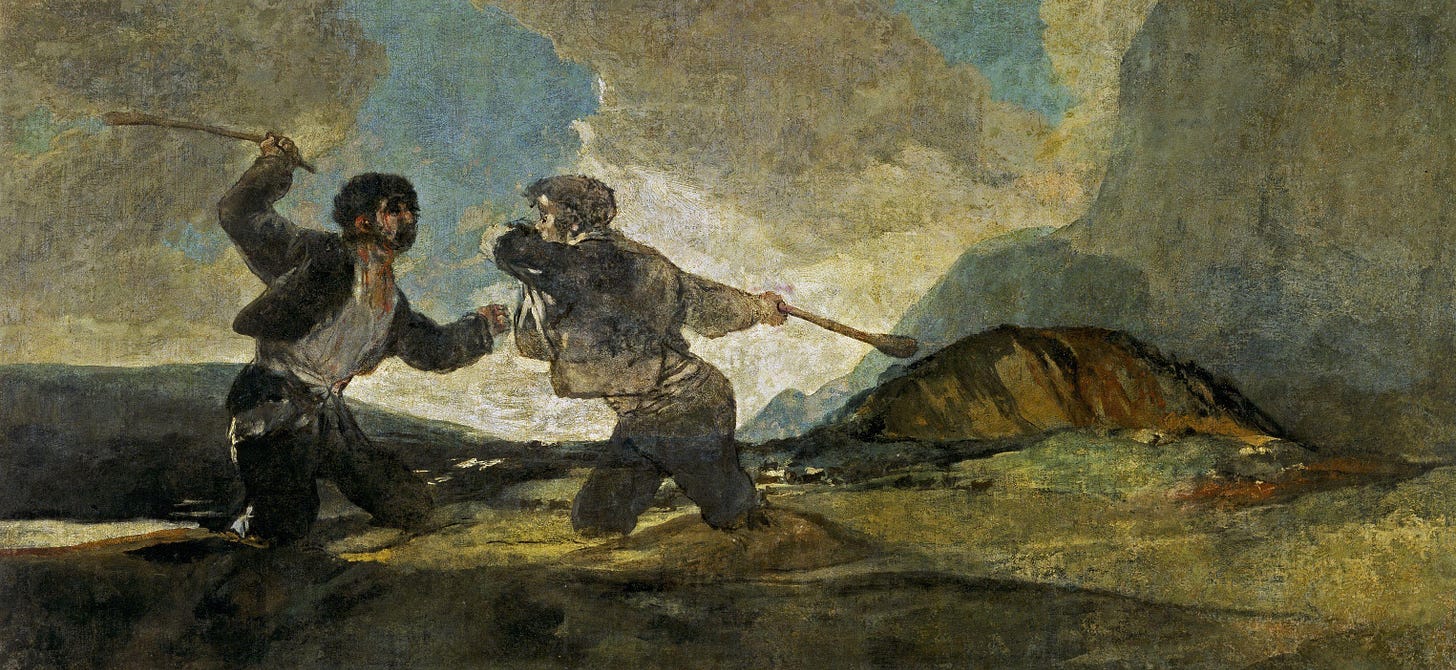John Stuart Mill wrote the following in 1859:
Protection, therefore, against the tyranny of the magistrate is not enough: there needs protection also against the tyranny of the prevailing opinion and feeling; against the tendency of society to impose, by other means than civil penalties, its own ideas and practices as rules of conduct on those who dissent from them; to fetter the development, and, if possible, prevent the formation, of any individuality not in harmony with its ways, and compel all characters to fashion themselves upon the model of its own.
Mill speaks for me in this simple paragraph I found myself reading at 3:30 in the morning after drinking too much RedBull and needing an audiobook’s droning to put me to sleep.
Unfortunately, Mill made it even harder for me to sleep, as these words punctuated my consciousness as a crystallization too sharp to sleep on. It turned out that I had the Kindle version so I could cut and paste today.
So that’s it. That’s the simplest and most straightforward explanation. I’m fighting the tyranny of an amoral majority, that same amorphous blob who for an incalculable number of psychologically and politically dysfunctional reason keeps racial theories and myths in permanent resonance with the tone of American discourse. Like the beats in the intro to rhymed couplets of goon and pimp despair you know what lyrics are coming, not exactly or precisely, but you know. It needs no further disguise and it comes as no surprise. The miracle’s not in the depth of delusion, but the audience’s size.
Dissonance in Culture
I could leave it at that, but every once in a while somebody writes to me and asks what am I trying to prove. I confess that writing is just a part of me, and it is as simple as this: I can’t accomplish this conversation in a series of bull sessions at a string of pubs in Los Angeles. I wouldn’t know where to go in order to hear someone else speak my mind. When is the last time you heard someone quoting J.S. Mill for any reason? I’m used to being the analog of a monk in the dark ages. I’m accustomed to having an alienating sense of curiosity. Most people told me, as a youth, that I think too much and I take myself too seriously. Science and technology are a shortcut, but the fuller argument needs to be burnished with a quote from a known genius. That’s how I see it anyway, I still don’t understand the MLA syntax or precise footnoting. I still think of all of my writing as hypertext.
What I have learned, hanging out with academics and professors and twisting the Algorithm to feed me stuff from the likes of Tyler Cowen, Peter Boghossian and Phillip Tetlock and concepts like Game B and a fog of other multisourced brain spew boils down to this. I had no intellectual sponsor. So I’m sort of a bastard without a good second-natured understanding of how to wrangle my intelligence. I’m rather impatient and consequently a bit brittle. So like Ben Affleck’s character Christian Wolff in The Accountant, I painfully toughen my shins to prepare for unarmed combat. I’m overdoing it. What I don’t have is the easy collegiality of people who know the social shortcuts provided by academia. I don’t know many people who actually know. So I am compelled to adopt this discipline of writing into the interwebz because I have Groucho Marx’s aversion to book clubs. What even is a thesis advisor?
What Intellectual Alienation Feels Like
Consequently, there’s a kind of insecure bravado, tinged with both confidence and sadness I experience when I see Harvard screw the pooch. I ask myself why I simply didn’t retake the SAT when I didn’t get the 1200 I knew would get me into Duke. I was an immature child, one year younger than everyone in my highschool class. I assumed an exceptional eye would find me, would see that my mind was a terrible thing to leave unsponsored. What I should have done was, perhaps, blindly ace all tests with the paranoia of an insecure drudge. Instead I reckoned with the actual pleasure of learning - of picking up the next skill for its own sake. I could have been a rocket, but I didn’t trust the applied torque of the [fucking Jesuit] guidance systems I was offered. I thought I should have had more degrees of freedom. I didn’t trust being a brainiac. I had to be cool and calm and a bunch of other things besides. As far as I knew there was no mold for me.
I am reminded of the day, that as an undergrad, I went to the HBS presentation given by their black students association. I listened to the woman who was its president, pursuing her masters in public health (to give back to the community) bemoan the fact of the racist insults that traumatized her — “Aren’t you [just] a student from Northeastern?”. Back in those days people like Thomas Sowell were bold enough to talk about the stigma of Affirmative Action. But right next to me was a graduate of HBS who dismissed her grievance. He was a VP at Ford Aerospace. I seem to recall him telling me he had line responsibility for a $400 million division of that corporation. I was instantly put at ease. Yet I lost that individual who might have had the eye that found me. It didn’t so much matter that he was black, it mattered that in that moment we were embarrassed for the woman at the podium. Embarrassed for, not embarrassed by.
I had no idea how quickly the easy camaraderie of my black friends and peers would thin out to a veneer as we found our ways across the country and our various disciplines in corporate America. But I ultimately determined after six years of accepting that racial unity and racial destiny were fallacies, that real culture was much thicker than flavor. What I didn’t have was the culture of proper academic discipline that I might have gained in a traditional research institution. I just had the flavor of a state college education. Again, it didn’t matter to me that that finding my guide would be black, I was black enough for everything I ever needed. I carried that all in my own shell. I didn’t need a black connection, I needed a connection, period. So I think about my actual experience of a disciplined work ethic sufficient to get me through places I never quite expected. Consequently, I think of the connections I might have nurtured, friends I might have made had I stuck to what we all(?) saw as conventional success, the Goldman Sachs Rules and stuff like that. All in all, I was vulnerable to the fears of the secular moral desert that my social leftish instructors painted.
OK too much about me.
The Journey Towards American Neo-Feudalism
This is where I think it’s heading, and the evolution of my Peasant Theory, if I find the AI augmented time and patience to evolve it, you’ll hear that here. I basically think that the journey to find significant socio-political factions with cordiality, openness and a love of discovery and respect for evidence is so fraught during these internecine wars of mimetics that we’re going to end up wrecking popular politics. We Americans are building social Gordian knots with our luxury beliefs, marketing overreach and institutional vapidity. For those of us who would rather not go kinetic, it’s going to be a hard slog. I think we will seek castles and therefore adopt castle doctrines. It may be a doom spiral.
So my new artistic references are from a feudal-ish and bloody past. When we seek honor what will we find? Caravaggio. But also Goya and DeLaroche. We will find bloody duels.







Thanks for this essay which reminds us all of the virtue of intellectual discovery. No up side to dogma and slogan words.